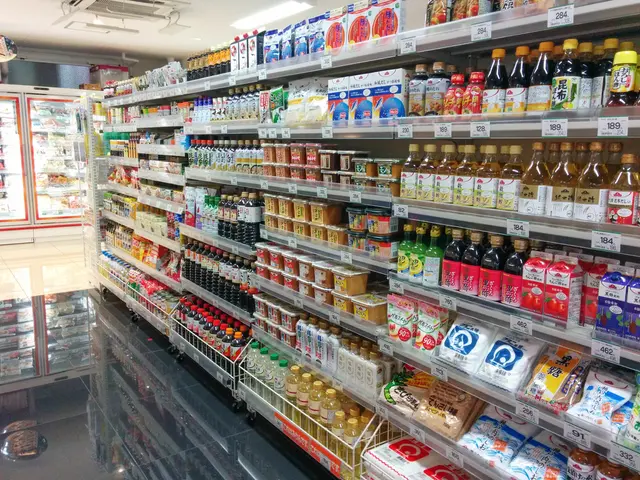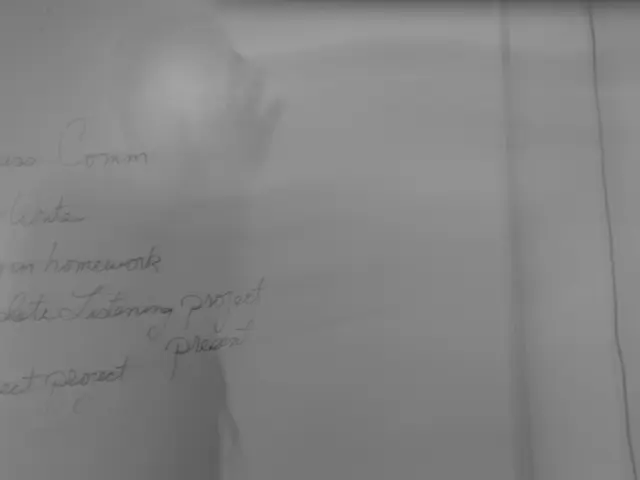United States imposes fresh sanctions on Iran's clandestine financial system
Revised Article:
Cracking down on its oil sales and financing for nuclear and missile programs, the United States unleashed a fresh round of sanctions against Iran on June 6—targeting close to 30 individuals and entities connected to Iran's shady financial system.
According to the U.S. Treasury Department, these sanctions are the first to zero in on Iran's clandestine banking infrastructure since former President Donald Trump reinstated the "maximum pressure" campaign against Tehran. The agency alleged that this hidden network funds Iran's nuclear and missile programs and powers armed groups across the Middle East.
The makeshift financial network under scrutiny encompasses Iranian nationals and some organizations stationed in the United Arab Emirates and Hong Kong, with at least two of them linked to Iran's state-owned tanker company. Relying on deceitful tactics, front companies within the network maintain multicurrency accounts in numerous banks worldwide to facilitate payments to sanctioned Iranian entities involved in oil sales.
U.S. Secretary of the Treasury, Steven Mnuchin, commented that this covert banking system is a significant source of revenue for the Iranian regime, enabling it to generate revenue from oil sales, channel funds, and finance its destabilizing activities.
In the run-up to this latest wave of sanctions, President Trump has relentlessly escalated pressure on Iran, imposing a series of sanctions on its oil industry and threatening to penalize foreign companies still purchasing Iranian oil. These moves have transpired amid negotiations to reach an agreement with Tehran that would restrict Iran's nuclear program.
The sanctions landscape surrounding Iran's nuclear and missile endeavors remains tense, as the United States keeps its foot firmly on the pedal, with no sign of easing these stringent measures in current nuclear deal proposals. Iran has voiced its displeasure with the latest U.S. offer for a nuclear agreement since it lacks sanctions relief—indicating the continuation of stalemate in negotiations.
Meanwhile, the UN Security Council scrutinizes the evolving situation, as existing agreements under Resolution 2231 and the Joint Comprehensive Plan of Action (JCPOA) set to elapse in October 2025, risking the activation of UN sanctions via the "snapback" mechanism, unless alternative agreements or interim measures are agreed upon. The Security Council is deliberating extending Resolution 2231 to guarantee the implementation and monitoring of commitments, depending on the progress of U.S.-Iran negotiations.
The international spotlight also shines on Iran's clandestine financial operations, with the U.S. Department of the Treasury’s Financial Crimes Enforcement Network (FinCEN) flagging Iran's usage of criminal financial networks to bypass sanctions. These hidden financial pipelines facilitate the movement of money obtained from illegal oil and petrochemical sales, a crucial revenue stream that sustains Iran's nuclear and missile programs and the Islamic Revolutionary Guard Corps (IRGC) and its allies. These shadow banking mechanisms employ complex schemes like illicit oil smuggling and the utilization of sanctioned vessels to evade U.S. restrictions as part of the "maximum pressure" campaign that commenced in early 2025.
In essence, the United States holds fast to its sustained crackdown on Iran's nuclear and missile programs, with no sanction relief in sight in current nuclear deal proposals, and international authorities keep a watchful eye on the covert financial networks powering Iran's nuclear and missile ambitions.
- The recent sanctions against Iran by the United States are not only targeting its oil sales but also its finance for nuclear and missile programs, a significant source of revenue for the Iranian regime, as mentioned by U.S. Secretary of the Treasury, Steven Mnuchin.
- Moreover, these sanctions are part of the "maximum pressure" campaign against Iran, which also includes regulations on policy-and-legislation and politics, as demonstrated by President Trump's escalation of pressure on Iran's oil industry and his threat to penalize foreign companies still purchasing Iranian oil.
- In addition, the international community, including the UN Security Council and the U.S. Department of the Treasury’s Financial Crimes Enforcement Network (FinCEN), is actively monitoring Iran's clandestine financial operations, as these hidden financial pipelines are being used to bypass sanctions and fund war-and-conflicts, specifically Iran's nuclear and missile programs, according to FinCEN.




